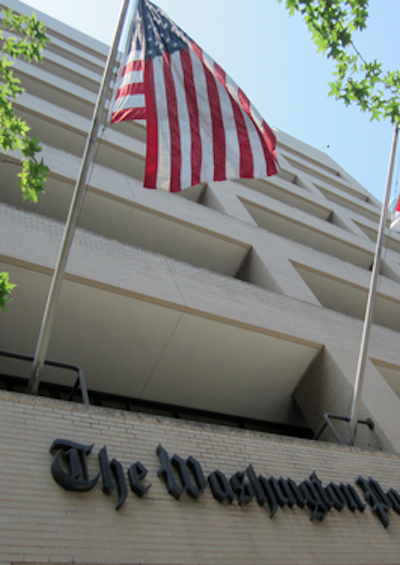My Two Big Worries About the World Bank
Is the World Bank becoming irrelevant?
November 5, 2014

For the first time in its seven-decade-long history, World Bank staff staged a work stoppage earlier this month. Staff are unhappy about the “Change Process,” the ongoing internal reorganization that President Jim Yong Kim initiated on his arrival at the Bank now more than two years ago.
The reorganization process is the first of my two big worries about the World Bank.
The second is more troubling: The Bank is well past its heyday as a major supplier of funds to developing countries. Short of a new vision, it faces an existential threat of growing irrelevance and even obscurity.
Rising incomes in big emerging markets reduce the demand for and logic of the Bank’s country loan model. I believe the world still needs a World Bank. But it needs a World Bank built for the development challenges of the 21st century, not the 20th.
The troubled reorganization
This I would lay directly at the feet of President Kim to fix.
Disruption is good, but two years of disruption with no clear end in sight is too much.
One tell-tale indication of the internal turmoil: Recently, the vice president for Africa “resigned” just days before last month’s Annual Meetings of the World Bank and the IMF — only to be brought back two weeks later.
From outside, it is easy to assume that a well-paid staff is grousing about losing status or position or even employment itself because of a reorganization. But after living through and observing reorganizations at the World Bank over the last 30 years, I have the sense that the media get that part of the story mostly wrong.
What staff are concerned about is the continuing uncertainty that affects their work in the fields.
At issue are practical questions: Who is going to now be in charge of the water and sanitation program I’ve been working on in Mali? Will my dialogue with the Karachi school authorities on the verge of agreeing to try contract teachers fall apart because a new department head will cut the travel budget? Can I get funding without a vice-president in place to champion technical analysis of a crop insurance program in eastern China?
World Bank staff traditionally settle down after a reorganization and get back to the business at hand. They know they have great jobs, mostly well paid and with a deeply satisfying mission. They also have passion about their mission to work for a better world.
But when President Kim agreed to an emergency town hall meeting several weeks ago, 8,000 (out of about 10,000) staff attended, including 5,000 online (many connecting in the middle of their night from overseas).
Staff, it seems, do not believe this reorganization is done — nowhere near done, let alone at the stage of fine-tuning. Their specific concerns are fundamental:
1. The new reorganization has created 14 silos where there were four — and more, not fewer management layers.
2. Decision-making is more centralized, not less.
3. Transaction costs to organize teams are higher than ever and budgeting for work with clients is not flowing.
4. A few senior managers get bonuses, while a big budget cut is slashing travel budgets. Surely management should share in the austerity.
It sounds as though structure and incentives are less aligned than before. Something is wrong, and it seems right to ask President Kim to say so and fix it.
The threat of irrelevance
The second thing that troubles me about the World Bank is a deeper sign of the disjunction between what the world needs the Bank to do, forcefully and with full funding, and its current limited mandate to support countries, for the most part one country loan at a time.
In an internal reorganization meant to strengthen “global practices,” there has been no leadership on acquiring a “global” mandate.
As we first showed, almost 10 years ago, in this 2005 CGD report, the World Bank needs to have a mandate and a pot of money to set priorities for the funding of cross-border, global investments.
The Bank could then deploy its expertise and its resources for useful, long-term purposes such as:
1. To cover the incremental cost of solar or wind energy — instead of coal — in South Africa.
2. To help finance licensing fees to speed up access to new patented technologies on behalf of developing countries.
3. To co-finance, with the Global Environment Facility, payments to Indonesia for retaining its forests.
4. Most of all, to invest strategically in global goods to prevent global bads, rather than responding with repeated rounds of emergency relief after global bads strike.
A big task ahead
I put this second worry, the growing gap between what the world needs from the Bank and what the Bank has the remit to do, to President Kim to fix, too.
A truly global mandate is not about big money, but about effective leverage of the Bank’s singular combination of financial heft, technical depth and global know-how in an institution designed for international collective action.
Kim must ask the Bank’s board to open a serious conversation about a new mandate and to ask the White House and the U.S. Treasury to contribute actively to that conversation.
It is time for the World Bank to take on the 21st century — to further its mission and save itself.
Takeaways
The world still needs a World Bank. But it needs it to be built for development challenges of the 21st century.
The World Bank faces an existential threat of growing irrelevance and obscurity.
There is a growing gap between what the world needs from the World Bank and what the bank has the remit to do.

